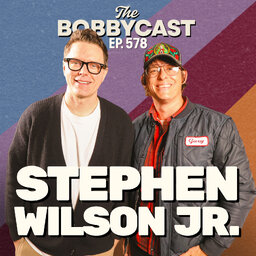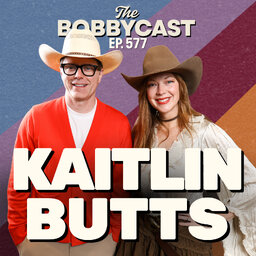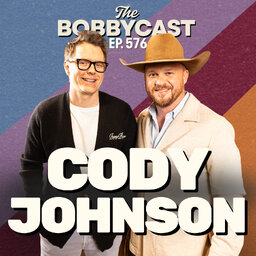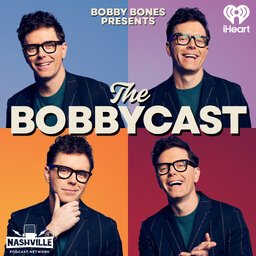#489- Grammy Winning Songwriter Daniel Tashian on Working with Ringo Starr + What Makes Kacey Musgraves Great + Naming His Kids After Peter Pan Characters
On this episode of the BobbyCast, Bobby sits down with Grammy winning songwriter, Daniel Tashian. Daniel talks about what it was like working with Beatles legend Ringo Starr on Ringo's latest country album, his dad touring with the Beatles, and why his dad didn't want him getting into the music industry. Daniel also discussed the perfect time to write a song, citing a recent example with Kacey Musgraves and why her songwriting is so great. Plus, Daniel tells Bobby the story of how he proposed to his wife, and the reason behind naming his daughter Tinkerbell.
Follow on Instagram: @TheBobbyCast
Follow on TikTok: @TheBobbyCast
Watch this Episode on Youtube
In 1 playlist(s)
Bobbycast
Bobby Bones hosts the biggest names in country music, pop culture and more from his studio in Nashvi…Social links
Follow podcast
Recent clips

#578 - Stephen Wilson Jr. on Going from Scientist to Musician and Turning Tragedy Into Art
1:08:02

#577 - Kaitlin Butts on “You Ain’t Gotta Die” Going Viral + Stage Vulnerability
1:04:11

#576 - Cody Johnson on Ear Injury Recovery, Rodeo Life & What Prison Is Really Like
56:45
 Bobbycast
Bobbycast